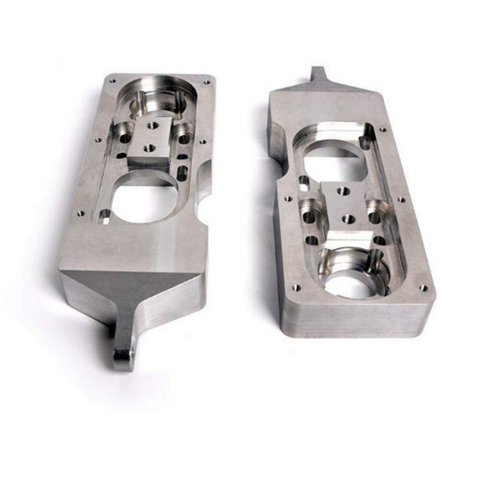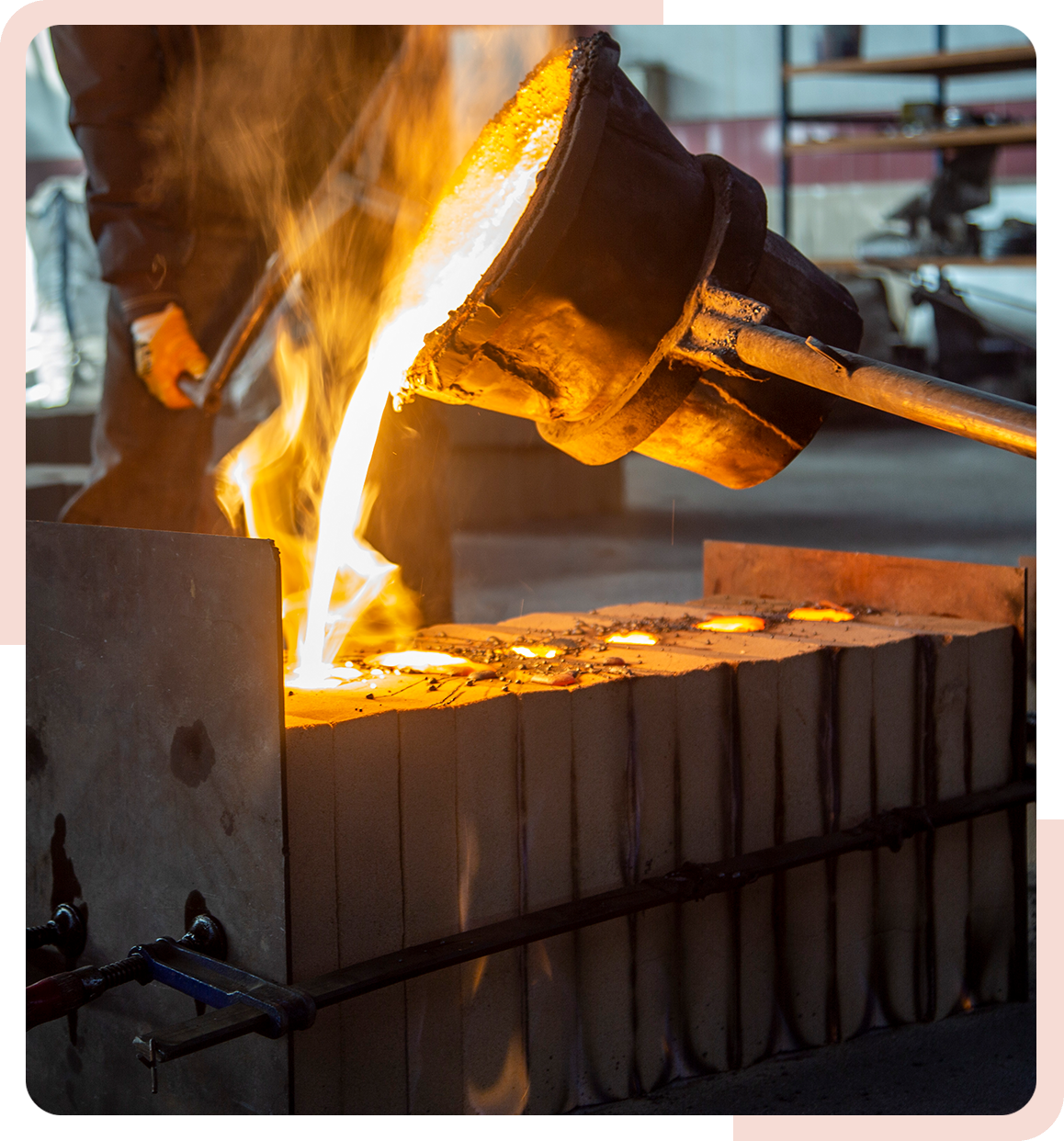Why Precision aluminum casting Supports Sustainable and Eco-Friendly Manufacturing
Wiki Article
Discover the Advantages of Aluminum Casting in Modern Production
Aluminum casting has actually become an essential procedure in modern-day manufacturing. Its lightweight yet durable nature presents significant advantages for various industries. The ability to accomplish detailed layouts and keep limited resistances adds to its appeal. Precision aluminum casting. In addition, the cost-effectiveness and ecological benefits make it a sustainable option. As makers look for cutting-edge options, the duty of aluminum casting continues to develop. What particular applications and advantages await expedition in this dynamic field?Lightweight Yet Strong: The Benefits of Aluminum
Numerous products are made use of in production, aluminum stands out due to its exceptional combination of light-weight residential properties and remarkable toughness. This distinct attribute makes aluminum an ideal choice for numerous applications, especially in sectors such as automobile, aerospace, and building and construction. Its low thickness permits much easier handling and transport, adding to minimized energy intake during production and setting up processes.In addition, aluminum's strength-to-weight ratio is remarkable, enabling suppliers to produce sturdy components without adding unneeded mass. This particular is particularly valuable in fields where weight reduction can lead to enhanced fuel effectiveness and general performance. Additionally, aluminum's resistance to rust enhances the long life of products, further strengthening its charm in modern-day manufacturing.
Ultimately, the light-weight yet strong nature of aluminum placements it as a favored product, cultivating development and effectiveness throughout multiple fields. Producers significantly acknowledge that these advantages can result in substantial improvements in layout and functionality.
Precision and Complexity in Layout
As producers welcome the capabilities of aluminum casting, they uncover new opportunities for precision and intricacy in design. This manufacturing procedure permits for the production of complex shapes and in-depth functions that standard approaches often struggle to attain. The fluidity of molten aluminum enables it to fill up intricate molds, resulting in elements with tight tolerances and great surface finishes.This precision is particularly valuable in sectors such as aerospace and automotive, where precise specs are crucial for performance and safety and security. Aluminum casting also accommodates innovative designs that enhance functionality without compromising structural integrity.

Cost-Effectiveness and Efficiency
Cost-effectiveness and effectiveness are critical considerations for makers exploring aluminum casting as a manufacturing technique. Aluminum casting deals considerable price advantages as a result of its lower product expenses contrasted to other steels (aluminum casting). The light-weight nature of aluminum reduces delivery and handling expenses, and its exceptional thermal conductivity permits quicker cooling times during the casting procedure, enhancing general manufacturing rateAluminum's convenience makes it possible for makers to produce complex forms and styles, lessening the demand for extra machining or assembly. This streamlining of manufacturing not only minimizes labor costs however additionally shortens preparations, permitting firms to respond promptly to market demands.
The resilience and deterioration resistance of aluminum castings add to longer product life-spans, minimizing substitute expenses over time. As an outcome, makers can achieve a balance of high-quality outcome and minimized operational expenses, making aluminum casting an increasingly attractive option in modern production.
Ecological Sustainability of Aluminum Casting
Aluminum casting stands out as an environmentally lasting production choice, particularly due to its recyclability and lowered eco-friendly footprint. The process enables the reliable use aluminum, a material that can be reused forever without shedding its buildings. This particular significantly reduces the demand for virgin aluminum, therefore lessening and conserving all-natural resources energy intake connected with removal and processing.
Applications Throughout Industries: From Automotive to Aerospace
While varied sectors proceed to seek innovative materials for manufacturing, aluminum casting has verified to be a flexible option throughout fields such as auto and aerospace. In the auto sector, aluminum spreadings add to light-weight lorry layouts, boosting fuel effectiveness and performance. Elements like engine blocks, transmission real estates, and wheels profit from aluminum's strength-to-weight ratio.In aerospace, aluminum casting plays a significant role in generating intricate components that need high sturdiness and low weight. Aircraft parts such as braces, touchdown gear, and architectural frames make use of aluminum for peak performance and safety.
The flexibility of aluminum casting enables it to cater to various other markets, including customer electronic devices, marine, and commercial machinery. This flexibility not just satisfies the particular needs of various applications yet likewise supports ongoing innovation in making procedures. As an outcome, aluminum casting continues to be a principal in modern manufacturing across numerous sectors.
Frequently Asked Questions
How Does Aluminum Casting Compare to Other Steel Casting Procedures?
Aluminum casting deals premium strength-to-weight proportions, faster cooling rates, and excellent deterioration resistance contrasted to various other metal casting procedures. These benefits make it perfect for various applications, improving efficiency and performance in manufacturing.What Are the Regular Lead Times for Aluminum Casting Projects?
Typical preparation for aluminum casting tasks vary from two to eight weeks, relying on factors such as complexity, order dimension, and manufacturing ability. Efficient preparation can help minimize delays and boost project timelines.Can Aluminum Casting Be Used for Intricate Styles?
Aluminum casting can certainly fit complex layouts. Precision aluminum casting. Its fluidness permits in-depth patterns and forms, making it suitable for complex components in numerous markets. This versatility enhances layout flexibility while keeping structural integrity and performanceWhat Post-Processing Options Are Available After Aluminum Casting?
Post-processing alternatives for aluminum casting include machining, brightening, surface treatments, anodizing, and welding. These techniques boost the surface, improve dimensional precision, and boost corrosion resistance, consequently optimizing the last item's performance and aesthetic charm.Exactly How Do Temperature Changes Affect Aluminum Casting Top Quality?
Temperature level modifications considerably influence aluminum casting top quality by influencing fluidness, solidification rates, and potential flaws. here Fast cooling can bring about enhanced brittleness, while too much warm might create warping or insufficient filling of molds during casting.Aluminum casting has arised as an essential procedure in modern-day production. As makers accept the capacities of aluminum casting, they discover new opportunities for precision and intricacy in design. Aluminum casting processes normally generate fewer greenhouse gas discharges compared to other steel casting techniques. While varied industries continue to seek innovative materials for manufacturing, aluminum casting has actually confirmed to be a functional remedy across sectors such as vehicle and aerospace. In the automobile market, aluminum castings add to lightweight lorry styles, enhancing gas efficiency and performance.
Report this wiki page